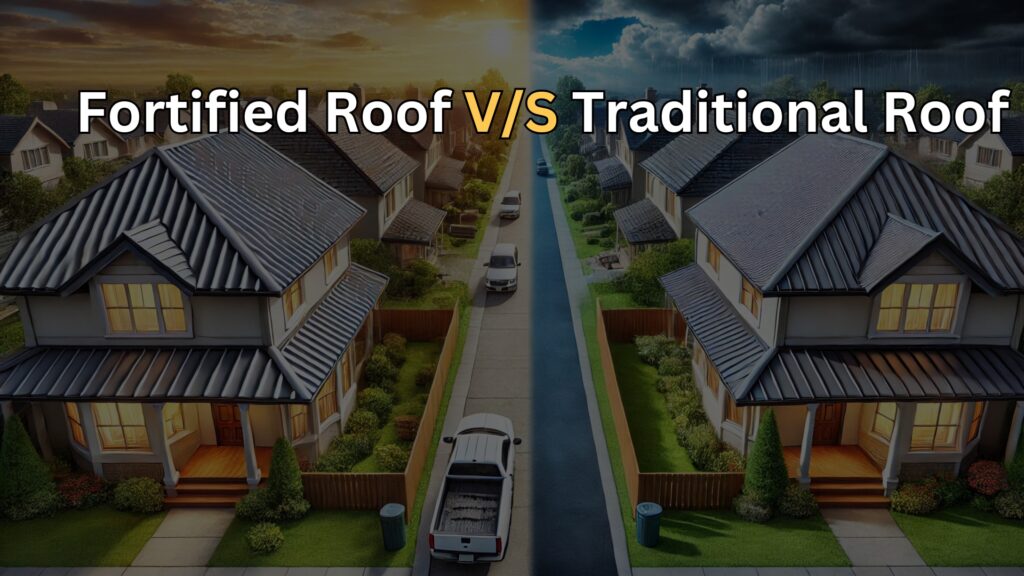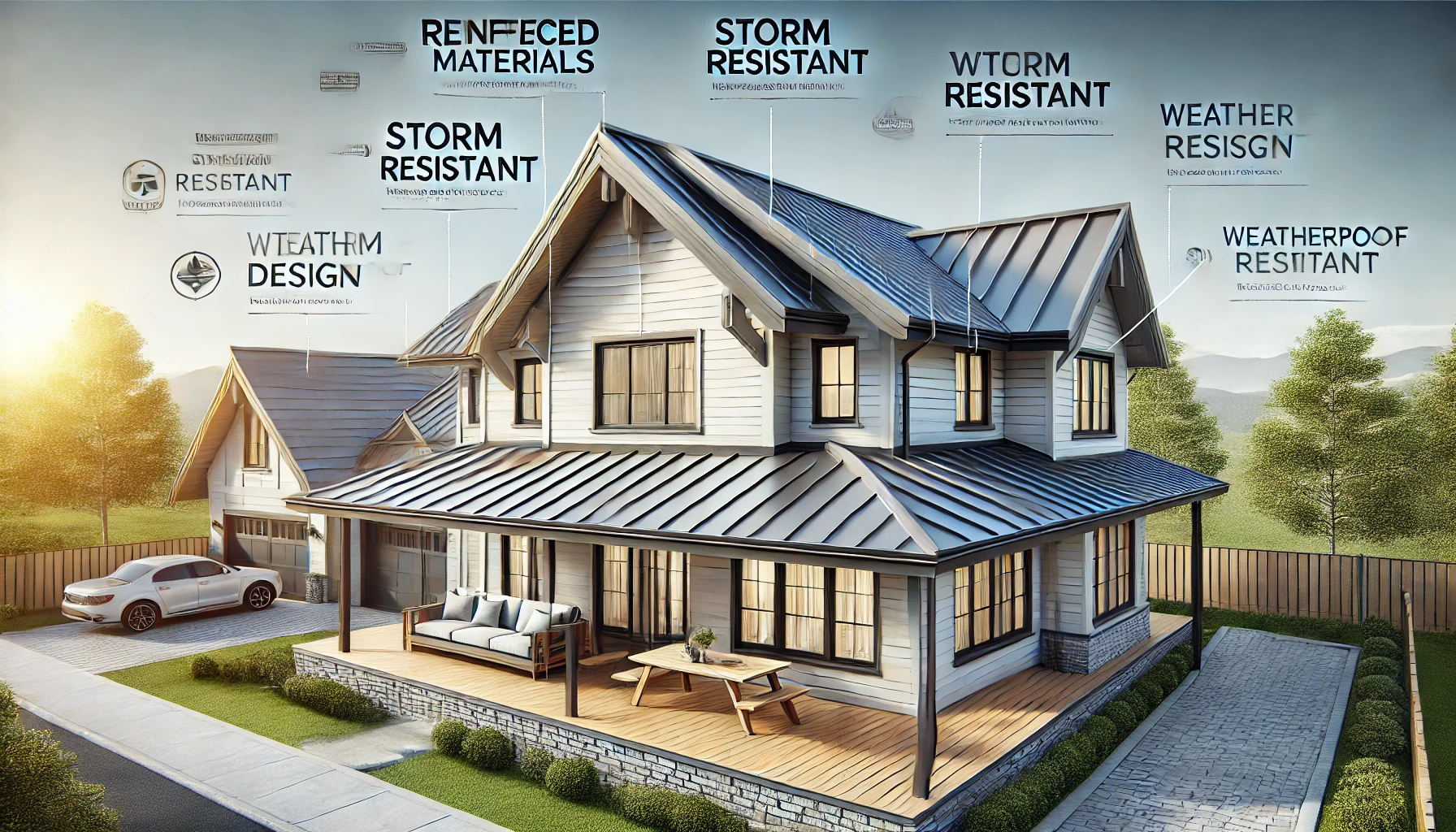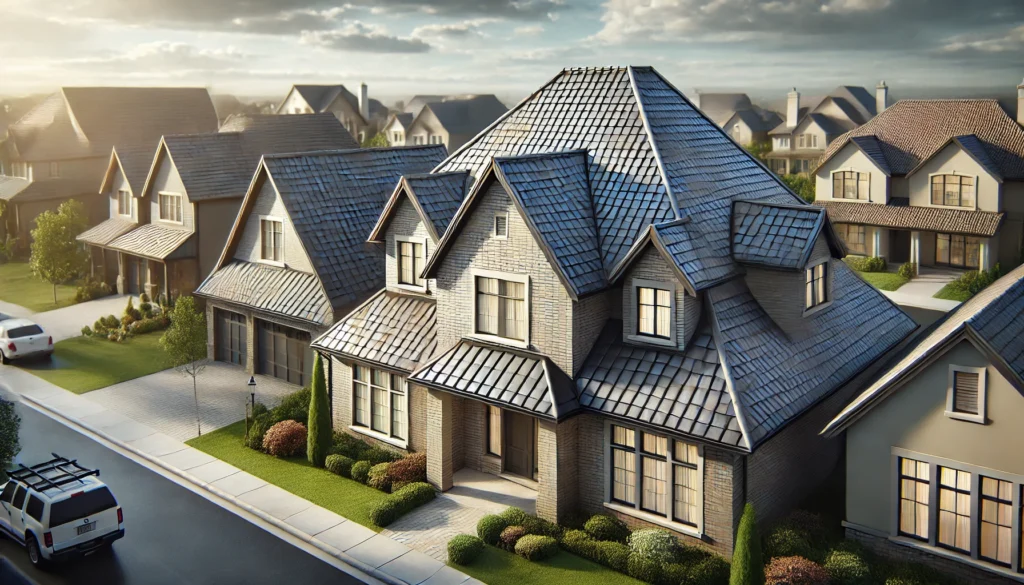
Depending on the type of roof you use to protect your home, the level of protection varies. While traditional roofs have been a staple in homes for decades, the fortified roof has been gaining immense popularity, especially in weather-prone areas. Let’s compare fortified roofs and traditional roofing systems to help you decide which one best fits your home.
What Are Fortified Roofs?
The Insurance Institute for Business & Home Safety (IBHS) designs fortified roofs using advanced construction techniques to withstand harsh weather conditions like hurricanes, wind, and rain. The Insurance Institute for Business & Home Safety (IBHS) designed the FORTIFIED program, which provides specific guidelines to enhance the strength and resilience of the roof.

What Key Features Does a Fortified Roof Possess?
- Improved Roof Deck Attachment: Utilizes ring-shank nails to provide a much stronger grip.
- Sealed Roof Deck: Seals the interstices between roof decking sheets to prevent water intrusion.
- Reinforced Edges: Adhered starter strips and higher-strength edge metal provide resistance to wind uplift.
What Are Traditional Roofs?
A traditional roof is what most people commonly encounter. This system relies on materials like asphalt shingle, metal roofing, and tile roofing; its construction does not consider the unique requirements of fortified roofs.

Important Traits of Traditional Roofs
- Affordable and accessible.
- Consistent performance during temperate conditions.
- We carefully choose materials that align with our aesthetic preferences.
Fortified Roofs vs. Traditional Roofs: Key Differences

Now, let us discuss the key differences that separate Fortified roofs from Traditional roofing products for which you should make an informed decision.
Durability and Weather Resistance
- Fortified Roofs
Hurricane forces can withstand 130 mph winds and heavy rain on fortified roofs. Compared to traditional roofing, fortified roofs are more resistance-capable against extreme weather. - Traditional Roofs: While strong, they cannot provide the same level of strength in hurricane-prone regions.
Cost Considerations
- Fortified Roofs : Typically more expensive to install because they require specially designed materials and installation methods. In the long run, however, costs are saved on damage and sometimes through insurance that could offset higher initial expenses.
- Traditional Roofs: Generally more affordable upfront but may incur higher repair costs after severe storms.
Insurance Benefits
- Fortified Roofs: Generally, homeowners can qualify for substantial insurance discounts due to the fact that fortified roofs have minimal storm damage.
- Traditional roofs have lower chances if they are not paired with other safety features.
Longevity and maintenance
- Fortified Roofs: Due to their strong construction and water sealing, these roofs typically require less maintenance.
- Traditional roofs may require frequent repair work, particularly during extreme weather conditions.
Advantages of reinforced roofs: enhanced security
Fortified Roofs Give You Peace of Mind Superior protection in extreme events reduces costly repairs.
Enhanced Protection
Fortified roofs provide peace of mind by offering superior protection during extreme weather events, reducing the likelihood of costly repairs.
Increased Home Value
A Fortified roof home will likely be more attractive to purchase as it is a long-term safety and durability investment.
Reduced Insurance Costs
Many insurance companies offer lower premiums for a home with a fortified roof due to the lower risk profile.
When is it time for a traditional roof?
Where fortified roofs have numerous advantages, traditional roofing may still be ideal for other homeowners—for example, those in areas with mild climatic conditions or those with a tight budget.
Cost-Efficiency
If the upfront cost is a high priority, then traditional roofing can prove to be much more affordable and provide the ultimate protection in moderate weather.
Aesthetic Flexibility
The traditional forms of roofing, including asphalt shingles, clay tiles, and metal roofing, all come in a large variety of styles and colors. Therefore, the homeowner makes their choice based on aesthetics.
Which Roof to Use for My Home?
A fortified or traditional roof depends on a number of considerations, including location, budget, and long-term goals.
Keep Climate in Mind
- Fortified Roofs: Homes that are located in areas prone to hurricanes, such as Louisiana and Mississippi, should use these roofs.
- Traditional Roofs: Suitable for temperate climate.
Evaluate the long-term costs.
Include maintenance, insurance savings, and repair costs. A more expensive upfront for a sturdily designed roof would likely save you much in the long run.
Consultation with Roofing Company Expert
There’s a difference between a professional and an amateur. Meet with a professional residential roofing company such as Sunbelt Roofs to evaluate your needs and establish the best way forward.
Why Sunbelt Roofs for Your Roofing Needs?
Sunbelt Roofs specializes in both fortified and traditionally installed roofs. Our team’s abilities range in providing high-quality, durable roofs to Louisiana and Mississippi homeowner needs.
Excellence in Fortified Roofing
As a certified roofing contractor, we know the requirements of building with FORTIFIED roofs, preparing your home for even the most extreme weather conditions.
Roofing Solution Done Right
Our team takes care of every detail of your roofing project, whether in the roof inspection or new installations.
Customer Oriented
At Sunbelt Roofs, we always prioritize customer satisfaction. We guarantee transparent pricing, prompt services, and a commitment to quality for your home safety.
Contact Sunbelt Roofs Today
If you’re deciding between a Fortified and a Traditional roof, Sunbelt Roofs will be pleased to walk you through that decision-making process for your home. Our pros assist you at every step of the buying process.
Call Today!
Louisiana: (985) 805-6921
Mississippi: (228) 222-5255
For quality roofing in Louisiana and Mississippi, you can rely on Sunbelt Roofs. Call today for a consultation and let the best system protect your home now.
